crisis
November 15, 2023

Published by Minara Begum at Nov 15 2023
The impacts of the climate crisis are forcing thousands of people from coastal Bangladesh into the cities. They move on with their lives, but it's never quite the same. For many, they’ll never make enough money to return to their homes, and they lose generations of family, friends, livelihoods - but also culture and traditions. It's a new home, that never really feels like home.
November 15, 2023
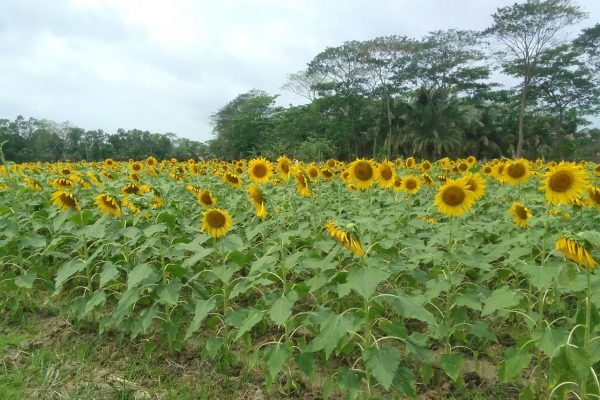
Published by Ashim Shikari at Nov 15 2023
Extreme soil salinity is rendering thousands of hectares of farmland in coastal Bangladesh barren for months of every year. This slow-onset impact of the climate crisis is forcing millions of farmers to abandon a centuries-old - and one of the most basic - livelihoods. But not all is lost. Ashim Shikari is a farmer adapting to the climate crisis through sunflowers.
October 12, 2023
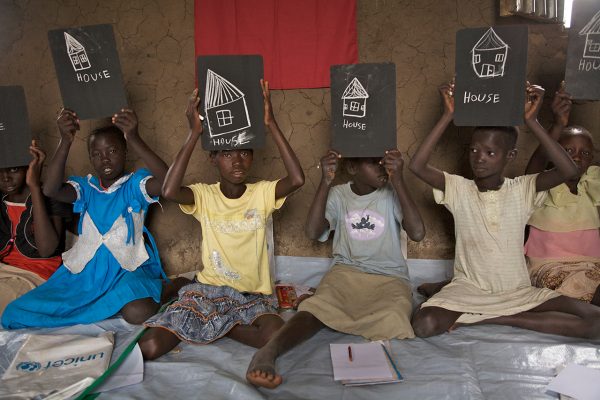
Published by Luba Khalili at Oct 12 2023
Categories
While the world is watching a war unfold in Sudan, a heavy burden of the crisis is being felt in the youngest independent country, South Sudan, where thousands of people are fleeing to, adding to an already overwhelming displaced population.
January 5, 2023

Published by Farah Masud at Jan 05 2023
At Frugal Innovation Forum 2022, we revisited the fundamental pillars of development with the post-pandemic world in mind. We reflected on the lessons learnt from the pandemic and together identified three key thematic focus areas in our quest to build back better.
December 2, 2022
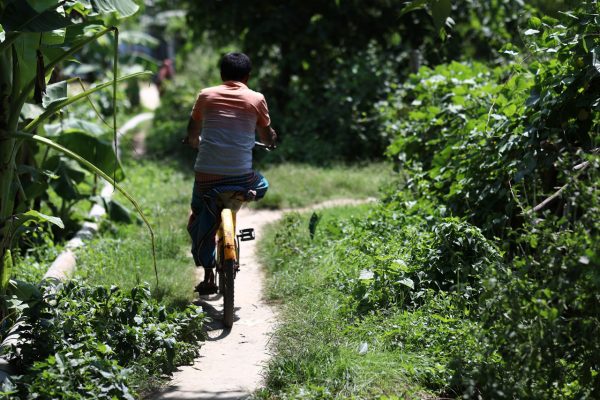
Published by Samia Mallik at Dec 02 2022
Every seventh person alive today – more than 1 billion people in total – lives with some form of disability. Yet, people with disabilities are still overwhelmingly overlooked in times of emergency.
August 25, 2022
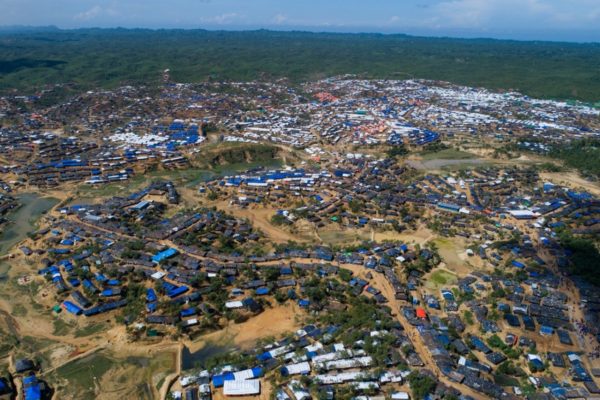
Published by Sarah-Jane Saltmarsh at Aug 25 2022
Categories
On 25 August 2017, hundreds of thousands of people from the Rohingya community fled persecution in Myanmar, and arrived in Bangladesh. Five years on, we recount the first days of the emergency response, and how the crisis unfolded into the most pressing humanitarian crisis of it's time. This blog post was written on 24 August, 2018, one year since the influx began.
March 22, 2022
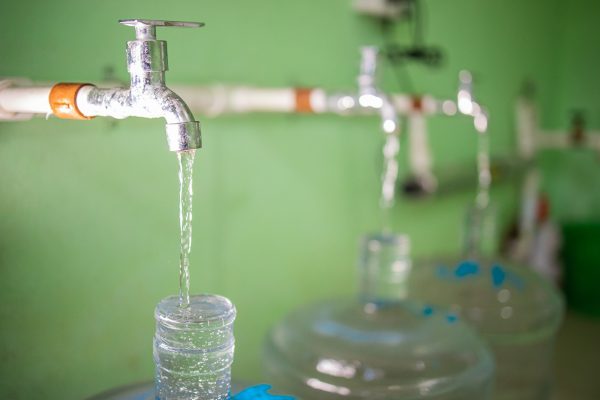
Published by MD Yazdani at Mar 22 2022
Rising salinity has sparked a water crisis in Bangladesh’s coastal areas, where millions of people lack adequate access to clean water. Local water entrepreneurs in Moheshkhali are fighting back.
September 13, 2021
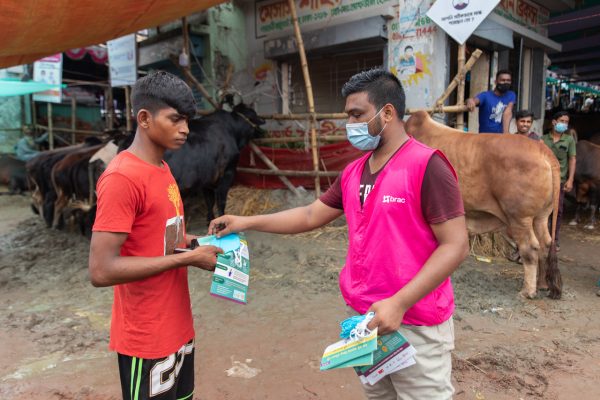
The Community Fort for Resisting COVID-19 project is a protracted effort to contain the virus within communities in Bangladesh, by equipping 81 million people across 35 high-risk districts with the tools and knowledge to keep themselves and their families safe. The project is implemented by a coalition of organisations who work at the community level. BRAC sat down with one of the partners, the Embassy of Switzerland in Bangladesh:
September 7, 2021
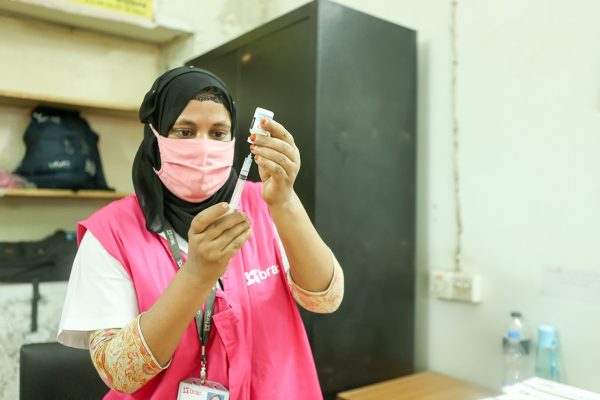
Published by Asif Saleh at Sep 07 2021
Bangladesh is emerging out of its worst wave of the pandemic. Daily infection rates have dropped below 10% for the third day in a row. Schools are set to re-open after the longest closure in the world, and BRAC is supporting the Government of Bangladesh’s push for mass vaccination. Read more from Asif Saleh, Executive Director of BRAC:
August 22, 2021
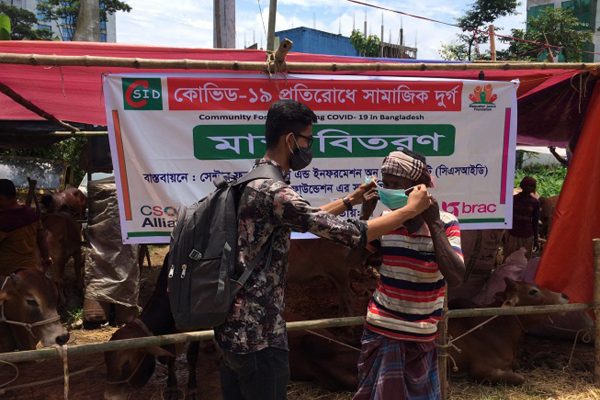
The Community Fort for Resisting COVID-19 project is a protracted effort to contain the virus within communities in Bangladesh, by equipping 81 million people across 35 high-risk districts with the tools and knowledge to keep themselves and their families safe. The project is implemented by a coalition of organisations who work at the community level. BRAC sat down with one of the partners, Manusher Jonno Foundation, to get an update on what they are learning:
August 19, 2021
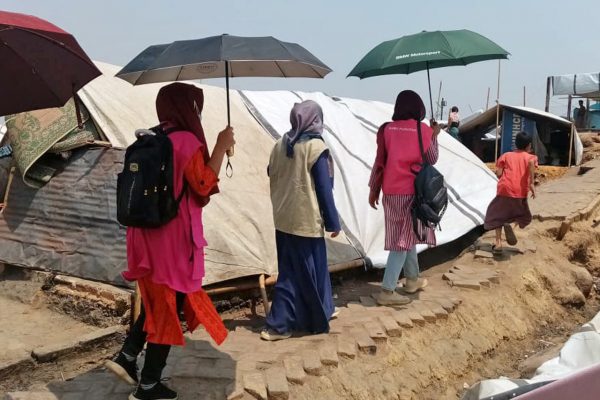
Published by Shaheen Nafisa Siddique at Aug 19 2021
The Rohingya population had to flee some of the worst forms of persecution when they left Myanmar in 2017. Since then, living in the world’s largest makeshift settlement situated at the edge of Bangladesh in Cox’s Bazar has meant facing new forms of challenges - floods, cyclones, landslides and fires - often adding to their losses and layers of trauma.
Shantir apa (sisters of peace) are leading a quiet revolution within the Rohingya camps. To help families strengthen their capacities to cope, they are ensuring an empathetic space to decompress and manage mental distress.
August 19, 2021

Published by Khondoker Golam Tawhid at Aug 19 2021
Germany and China experienced severe flooding this year, while Turkey, Australia and the US faced wildfires of catastrophic proportions. These events signify what looks to be our collective future. Alongside mitigation, we need to be looking for new ways of responding to a changing climate. Bangladesh, a country often referred to as the ground zero of climate change, has worked with communities to tackle disasters for half a century.
What has it learnt? Build resilience at the community level.

